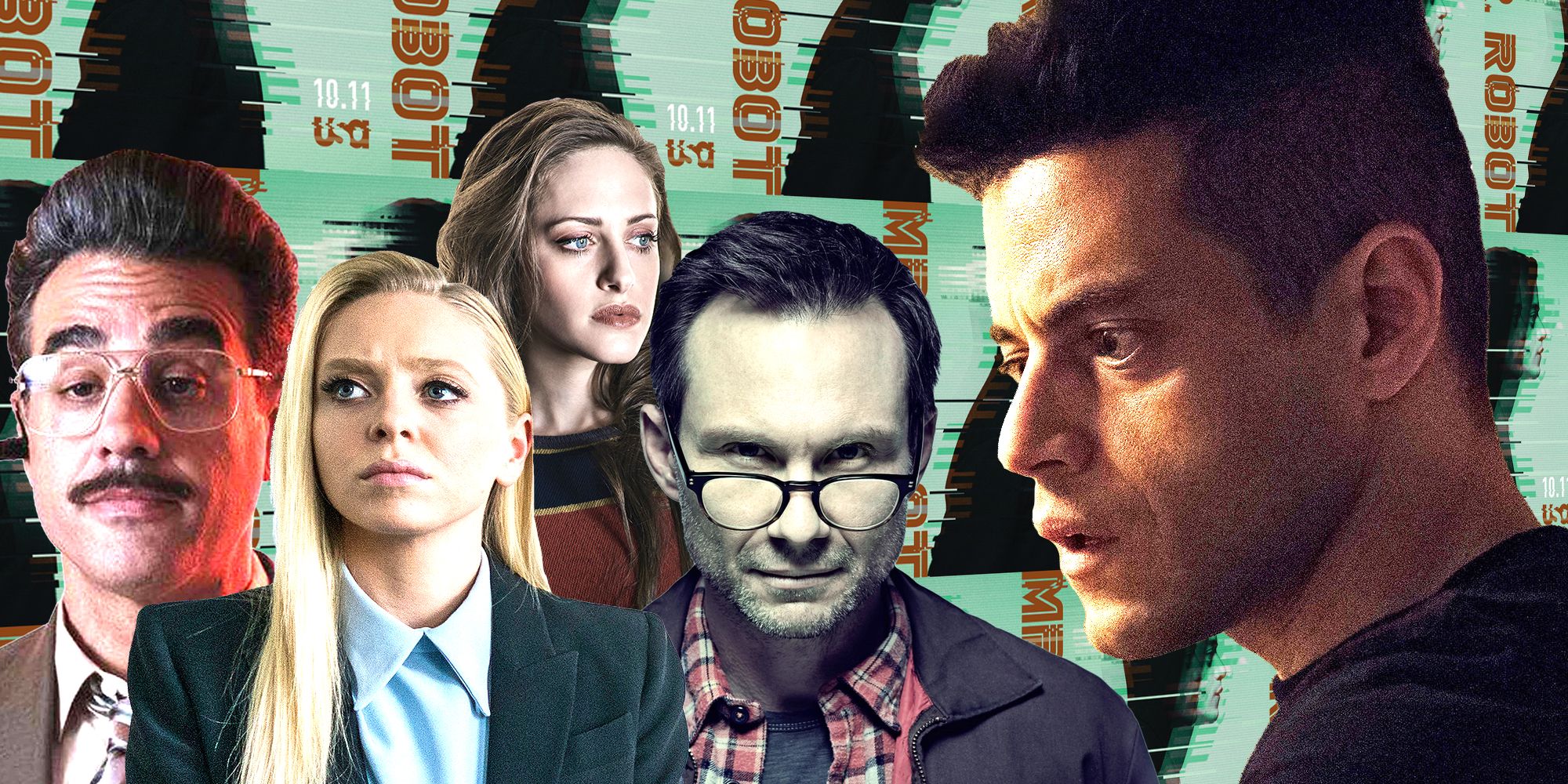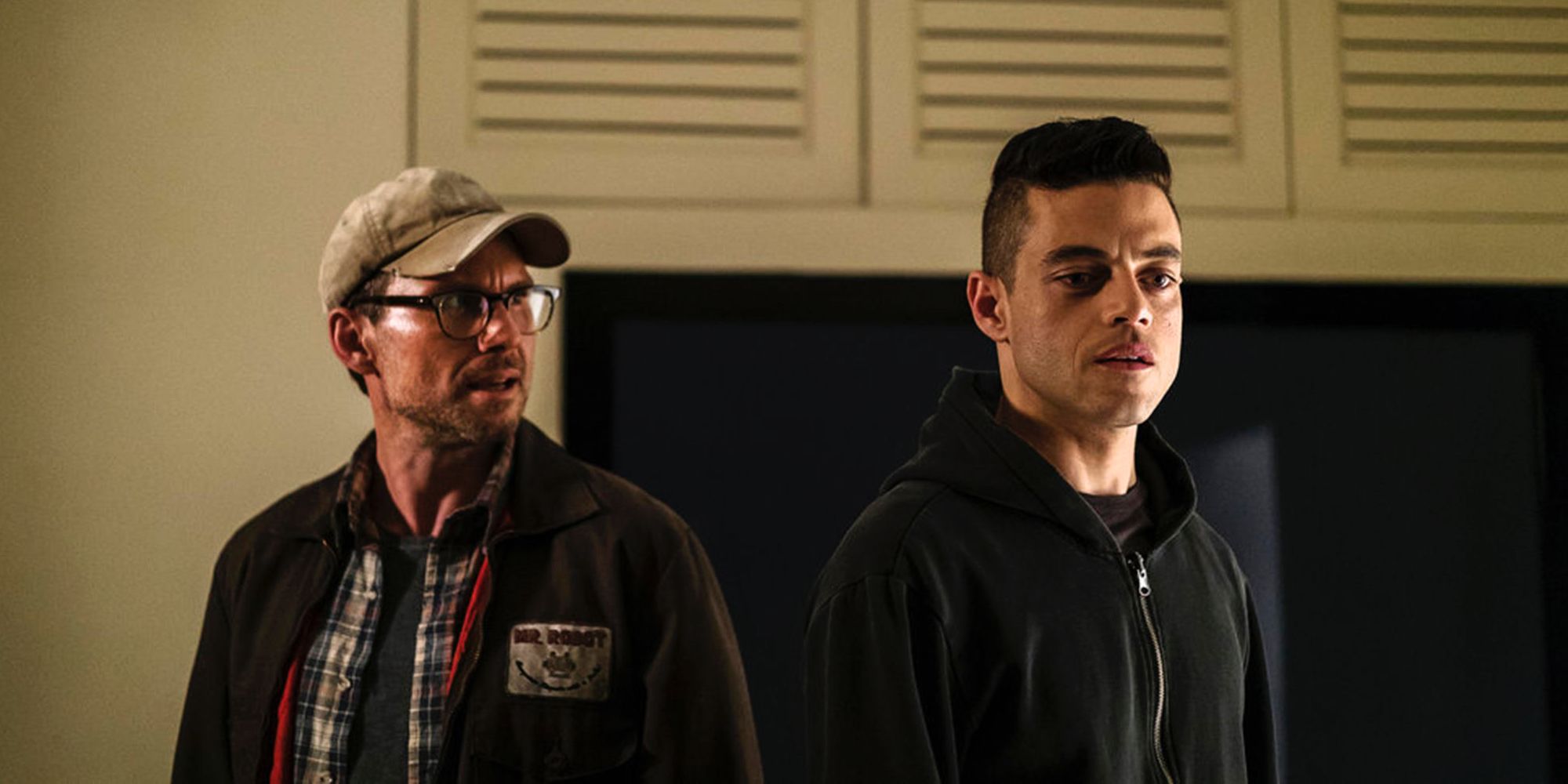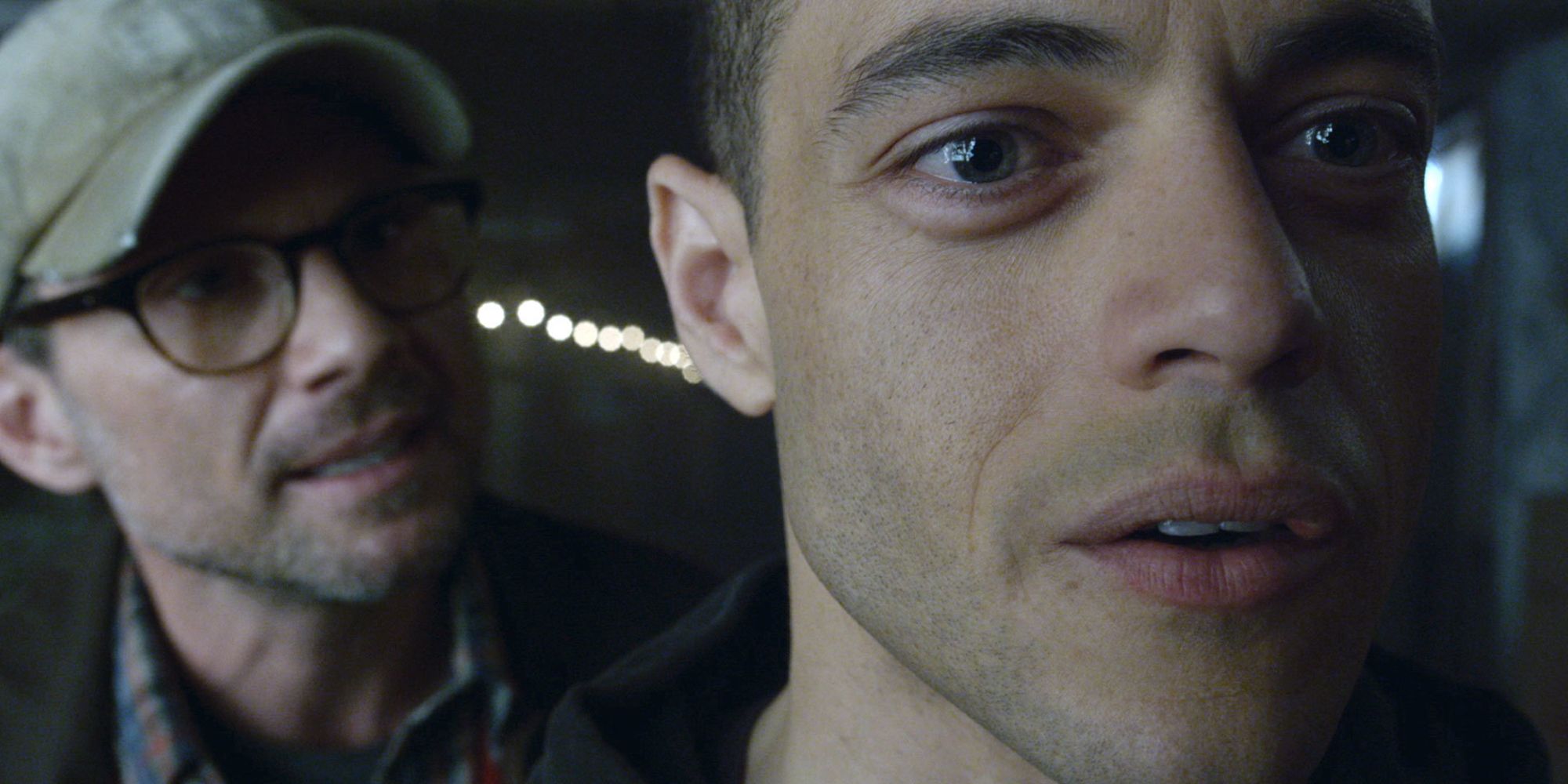When Mr. Robot began, it did so with a promise that Elliot Alderson would set in motion the largest revolution the world had ever seen. To be fair, the word œrevolution came from Mr. Robot and not Elliot (which is to say, it came from Elliot, but not really), but perhaps that's why it carried so much weight and why, when the revolution came in the form of the five/nine hack, it did so as the triumphant climax of the twisty first season. The action undertaken by Elliot, Mr. Robot, Darlene, and the rest of fsociety ” with an assist from the Dark Army ” was the first step in a social and economic revolution meant to shorten the enormous wealth and power gap between the one percent and everyone else. It was also an act of revenge against Evil Corp, the multinational conglomerate responsible for, among many other things, the deaths of Elliot's father and Angela's mother.In the wake of the hack, the biggest revelation of Mr. Robot season 2 wasn't that it pulled a fast one on the audience, whittling away half the season watching pick-up basketball games with Craig Robinson and his dog, and listening to Joey Bada$$ wax philosophical about Seinfeld, all while pretending Elliot wasn't really in prison. Instead, it was that the revolution set in motion with the season 1 finale almost immediately went bust. The world that was to have been freed from the crushing weight of student and consumer debt, bad home loans, and the predatory practices of soulless corporations like E Corp, was instead plunged deeper into financial ruin. Meanwhile, men like Phillip Price somehow kept their heads above water, and Whiterose seemingly edged closer to her and the Dark Army's ultimate goal ” one that, according to Angela, promised to undo all the wrongs of the past, though it seems more likely to make things worse for everyone.Related: Mr. Robot Teases the Impossible In Season 3A large part of season 3, then, is rooted in the notion that the revolution has failed, that real change may be even less tangible than Mr. Robot himself, and the only truly enduring thing is the inherent horribleness of people who seek power for the sake of power. Such a realization might be the series' biggest twist yet, one that makes season 3 more than a little tragic and also reshapes the narrative of the entire series. The future cannot be changed; you can only fix the mistake of having tried to change it in the first place. The only hope is to undo the past and mitigate the damage that's already been done. With that, Esmail opens the door to bring his series full circle by undoing the five/nine hack, and some of the sentiment surrounding season 2. The results so far have restored the series to its place as one of the best dramas on TV right now.
Season 3 Embraced Limitations
After nine episodes, Mr. Robot season 3 reads more like a response to the naïve over-confidence of season 1's promise of revolution. It's the TV equivalent of the recent college grad whose expensive MBA has so far netted them two part-time jobs and an extended stay in their parent's basement (though, to be fair, the basement has its own entrance, so it's totally like a separate apartment). In other words: reality has once again impeded the progress of a future that was supposed to have been bright.
But even as things worsened for Elliot, Darlene, Tyrell, and, well, everyone not named Whiterose, the season's episodes have largely been an improvement over season 2. Part of that is because season 3 has seen Mr. Robot embrace certain necessary limitations. The show still loves its twists, but they have come in form of a devastating 71-building attack carried out by the Dark Army, one that took not only the audience by surprise but, finally, took the characters by surprise, too. This time, Elliot wasn't hiding things from the viewer like he usually does; he was as in the dark as we were, which made the revelation of what a small part he actually played in the grand scheme of things fittingly bleak. And no one took that news harder than Mr. Robot himself, the character shouting the loudest about how the five/nine hack was all his idea.
The humbling of Mr. Robot seemed to be reflected in how the series restrained itself. Most episodes clocked in at or around the one-hour mark, instead of spinning out into 90-minute chapters. Similarly, that the attack on E Corp's buildings came after an audacious single-shot episode feels apt. It's like Mr. Robot splashing cold water on its face before giving into the same indulgences that stymied much of season 2. The exigency of the narrative took precedence over stylistic flourishes in a way that made the two work together like they did in season 1.
This being Mr. Robot, though, the show may have excelled by accepting certain limitations, but that didn't stop it from seeding a hope in the impossible throughout the season.
Angela's Delusions Are Our Delusions
When Mr. Robot drops a hint, it's a good idea to pay attention. When the series repeatedly references Back to the Future II and shows Whiterose standing inside a large hadron collider, that's reason enough to get suspicious. When Angela is convinced her collusion with the Dark Army, that aided in the destruction of 71 buildings and contributed to the loss of thousands of lives can all be undone, it's safe to question whether or not the show is seriously teasing a major genre shift. It's admittedly exciting thinking about it; if there's any show that might be able to convincingly pull a switch like that off, it's Mr. Robot. But is it anything more than a tease and the delusions of a woman conned into helping a terrorist with the promise of great (read: impossible) rewards?
At the moment, it's merely tempting to think Mr. Robot could actually head back in time and undo the actions of fsociety and the Dark Army. But for season 3, undoing the past likely has more to do with decrypting E Corps' data than it does with creating a rip in the space time continuum by firing up a large hadron collider or stepping into a DeLorean with Doc Brown, no matter how much fun it is to see Christian Slater in that wig.
Still, as likely as it is that Mr. Robot will keep both feet planted in the reality Esmail has created for the time being, it doesn't change the fact that one of the biggest selling points of season 3 is the way in which the series understands the appeal of the impossible and of undoing the mistakes of the very recent past ” in both our 2017 and in the show's 2015. It's wishful thinking that helps make Angela's decisions more relatable, while also keeping the Back to the Future fan in all of us wondering if where Mr. Robot is going it doesn't need roads.
Season 3 Has Moved Outside Elliot's Head
Season 2 spend so much time wandering around Elliot's head it began to feel like everyone watching was as much a prisoner as he was. That may have been intentional. Nevertheless, Mr. Robot season 3 made a refreshing change in perspective, one that greatly reduced how much the audience shared the same headspace as TV's most notorious unreliable narrator. Whether or not you think the move was a response to some of the criticism of season 2, the shift has given the series a lot more breathing room and the chance to expand, which is a welcome change of pace, even for those who enjoyed the relatively claustrophobic nature of the first two seasons.
Change has meant season 3 enjoyed a renewed focus that (an episode devoted to Tyrell Wellick's misadventures following the five/nine hack aside) maintained a mostly propulsive story with increasingly high stakes, stakes that felt like they had the power to plot a new course for the series moving forward. Some of that is due to the antagonistic nature of Elliot's relationship with Mr. Robot this season. Keeping the two apart has turned Elliot's internal conflict outward; it's given him an antagonist whose point of view we can understand because part of it comes from the character we're most invested in. Mostly, though, pitting the two against one another by partitioning off that part of Elliot's already fractured mind made for a lively adversarial relationship. It also turned a familiar dynamic upside down, leaving the pair's future uncertain ahead of the season finale.
Everyone will have to wait until the finale hits to see whether or not the series will charge forward into the future or literally try and undo the past, but for the present it seems like Mr. Robot season 3 has put the series back on top.
Next: Mr. Robot: Dealing With the Huge Expectations of Season 2
Mr. Robot season 3 concludes Wednesday with eps3.9_shutdown-r' @10pm on USA.




